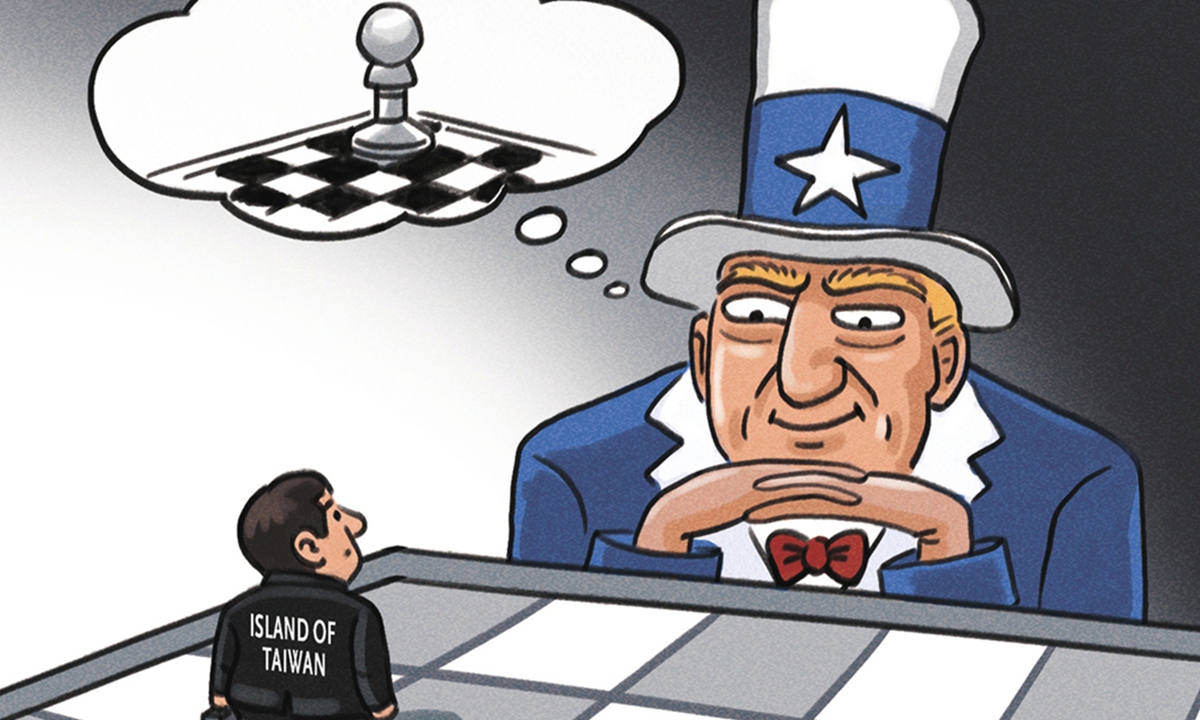
Illustration: Liu Rui/GT
The Democratic Progressive Party authorities of the island of Taiwan must be jittery. President Juan Orlando Hernandez of Honduras, one of the 15 remaining "diplomatic allies" of Taiwan, said on Tuesday the Central American country could open a trade office in the Chinese mainland in a bid to acquire COVID-19 vaccines. The move has worried Taiwan authorities who believe Honduras may get close to the mainland and abandon Taiwan.
Just in April, Taiwan accused the mainland of launching "vaccine diplomacy" in Paraguay, its only South American "ally," after Paraguay's foreign ministry said brokers offered doses of Chinese vaccines, out of fear that the ally may lean toward the mainland.
The vision and breadth of mind of Taiwan authorities, if any, is outdated. That is why they behave like a badly frightened bird toward the development of ties between its "allies" and the mainland. Taiwan's lingering relations with these "allies" are maintained through its "dollar diplomacy," which is not real diplomacy but an ill-functioned confrontation against the mainland with the help of the US.
Zhang Hua, an associate research fellow at the Institute of Taiwan Studies of the Chinese Academy of Social Sciences, told the Global Times Wednesday that the relations those countries forged with Taiwan are all aimed at interests, and when Taiwan is incapable of offering the interests, it is normal that they turn their backs.
Hernandez noted that the US has a huge number of vaccines that are going to expire. But the US would rather hoard them than lend a helping hand to countries in need. Some foreign observers commented on Twitter that the US missed an opportunity to illustrate it's worth sticking with Taiwan ties. Yet it just proves how little importance the US has attached to Taiwan and its "allies."
Among the few "diplomatic allies" of Taiwan, Latin American countries take up the majority. The US has viewed Latin America as its backyard and has the illusion that regional countries are always playing within its orbit. But the indisputable fact is that US influence in the region has weakened. In the past, the US offered only lip service to regional countries, while the pandemic-plagued US is even not bothering to make verbal promises but places its interests above everything else.
In stark contrast, the down-to-earth cooperative manner of China, the concrete benefits the cooperation can bring about, and a stable expectation for ties are much more than the symbolism of the relations with the island of Taiwan or the US. China does not give empty slogans. In the issue of vaccines, China has been fulfilling its promise of making its vaccines global public goods and trying to increase the accessibility of vaccines in developing countries. Today's Chinese mainland doesn't need to "poach" the "allies" of Taiwan; its economic attractiveness and its responsible attitude speak, and speak louder.
Zhang said that although the US passed the TAIPEI Act, it has no will or ability to help Taiwan expand its "international room." It even cannot maintain Taiwan's existing room. The US offers only lip service to Taiwan and only when it needs Taiwan to contain the Chinese mainland.
The amount of dollars Taiwan can pay for maintaining "diplomatic ties" with its "allies" is far from the losses those countries suffer from not establishing ties with the Chinese mainland. It is time these countries realize their losses caused by Taiwan and the US.




